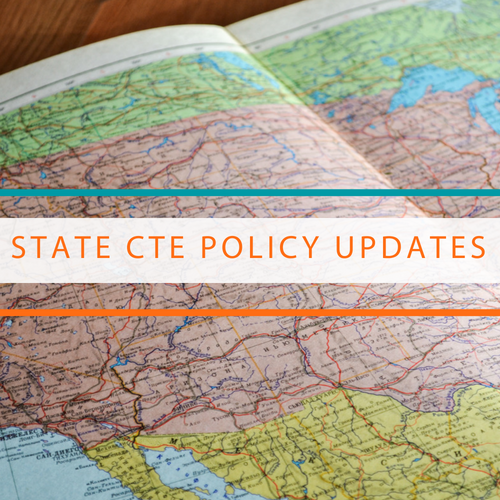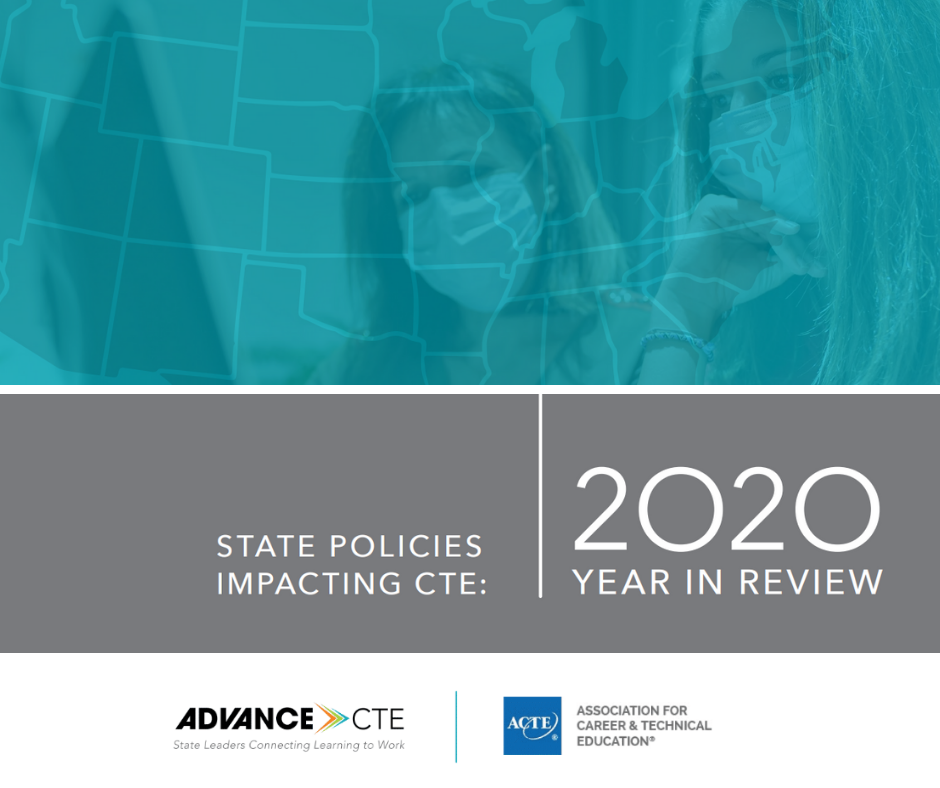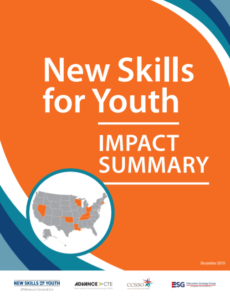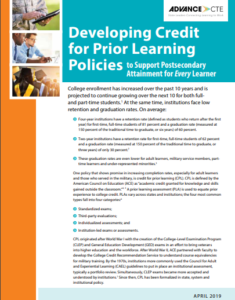 The destruction of Hurricane Katrina in 2005 transformed New Orleans into a place where construction is not just a high demand, high-wage career, but an act of service to the community. unCommon Construction (UCC)—a non-profit organization in New Orleans that delivers afterschool programming and weekend on-site apprenticeships—engages high school students in career pathways within the construction industry, while also building and selling essential market rate homes for residents and families in the students’ home town.
The destruction of Hurricane Katrina in 2005 transformed New Orleans into a place where construction is not just a high demand, high-wage career, but an act of service to the community. unCommon Construction (UCC)—a non-profit organization in New Orleans that delivers afterschool programming and weekend on-site apprenticeships—engages high school students in career pathways within the construction industry, while also building and selling essential market rate homes for residents and families in the students’ home town.
UnCommon Construction provides high school students with the opportunities to gain over 100 paid internship hours per semester in on-site, hands-on work based learning in the construction trades, through partnerships with area schools and the Louisiana statewide CTE program known as Jump Start. UCC student apprentices engage in trainings after school and spend the weekends building a home in their community alongside construction industry experts including architects, engineers, carpenters, electricians, realtors, title attorneys and more. As UCC Founder Aaron Frumin puts is, “the need in this industry is so broad and widespread, there really isn’t a one-size-fits-all approach.”
UCC programming utilizes the flexibility of the afterschool hours to emphasize the development of communication and teamwork skills, also known as employability skills, to compliment the work-based learning opportunities students receive on the job site. During afterschool hours, students participate in a leadership development series called “Framing Character,” and are evaluated using a third-party evaluation tool known as a Hirability Scorecard, developed by MHALabs.org. A student who progresses well through the rubric receives an end-of-program endorsement shared with industry partners upon graduation.
The program prides itself on the success of its completers. Eighty percent of students who enroll in the rigorous program complete their semester. Of those who complete their term, 100 percent have remained on track for high school graduation and gone on to either further their education or acquired a job within three months of graduating high school. Remarkably, UCC has been incredibly successful in engaging nontraditional student populations. While the construction industry is 8 percent female about 40 percent of program participants are female or non-gender conforming.
UCC’s model requires a close collaboration with the schools it partners with, often working directly through a college and career counselor or internship coordinator. The school will inform students about the availability of the UCC program, then assist students with writing their applications, acquiring work permits, soliciting letters of recommendation and preparing for their in-person interviews. Once a student is enrolled as a participant, the UCC program reports attendance and progress back to the school so that the school may assign internship credit. UCC also recognizes that students benefit from individual relationships with the mentors in their program, and has established partnerships with schools to provide students with wrap-around support during the school day during identified intervention times to help the student stay on track for high school graduation and career success.
How Louisiana Supports Programs Like unCommon Construction
Afterschool programming and work-based learning in Louisiana is strengthened by state policy and funding. Louisiana’s statewide Jump Start initiative ensures the high school accountability system credits schools equally for work preparing students on quality pathways to college or career. Through Jump Start, students can earn a career diploma by completing industry-based credentials, and career experiences/internships are considered a core element of a high-quality secondary CTE program. As UCC director Aaron Frumin puts it, “college and workforce pathways are equally prestigious.”
Additionally, schools can draw down state dollars through the Career Development Fund to support students with unCommon Construction’s year-long programming. The fund provides financial resources to schools to support career development activities, including transportation to work-based learning sites, insurance, tools and gear, training by career professionals and the 100-120 hours of work based learning. UCC’s non-profit program then leverages funding from the houses it sells back into the community along with funding from philanthropic partners to provide every participating student with hourly pay above the minimum wage for their work and training.
Leveraging Perkins V to Strengthen Afterschool Work-based Learning
State leaders have a number of levers to strengthen and expand work-based learning through the Strengthening Career and Technical Education for the 21st Century Act (Perkins V), the new federal law for Career Technical Education (CTE). States can use Perkins V to foster meaningful partnerships with afterschool programs and other intermediaries to ensure all students can access meaningful work-based learning opportunities, especially when paired with programs that support student employability skills and wraparound supports to see students through a successful graduation and onto the next step in their college or career path.
For one, Perkins V gives states the opportunity to hold local recipients accountable for delivering work-based learning through the secondary CTE program quality indicator. States can choose between three different measures for the accountability indicator, and many are choosing to prioritize work-based learning. As a result of this shift, work-based learning—during and after school hours—is expected to become a more integral part of the CTE experience.
Second, Perkins V funds can be used at the state and local level to support the establishment and expansion of work-based learning opportunities for students. Local funding decisions will be driven by a new Comprehensive Local Needs Assessment, which can surface gaps in work-based learning opportunities and give local leaders direction to help expand offerings for students.
Finally, the law’s emphasis on systems alignment encourages CTE leaders to coordinate with other state agencies to support career development and workforce training for learners. This opens the door for meaningful collaboration with Every Student Succeeds Act (ESSA) and Workforce Innovation and Opportunity Act (WIOA) coordinators, who can align afterschool, youth workforce and career pathways programs.
This blog post is the second in a series on the intersection of CTE and afterschool programs, exploring strategies and opportunities to bridge learning both in and out of the classroom. It was written by Jillian Luchner from the Afterschool Alliance, Christopher Neitzey from the Afterschool Alliance and Austin Estes from Advance CTE.
 State education agencies, legislators and educators faced significant challenges from the coronavirus pandemic, including adapting to remote and hybrid delivery of hands-on learning, and responding to local and national skilled labor shortages. The number of state-level CTE policies enacted that affect Career Technical Education (CTE) fell to the lowest number in 2020 since Advance CTE and the Association for Career and Technical Education (ACTE) began publishing these annual Year in Review reports.
State education agencies, legislators and educators faced significant challenges from the coronavirus pandemic, including adapting to remote and hybrid delivery of hands-on learning, and responding to local and national skilled labor shortages. The number of state-level CTE policies enacted that affect Career Technical Education (CTE) fell to the lowest number in 2020 since Advance CTE and the Association for Career and Technical Education (ACTE) began publishing these annual Year in Review reports.

 On the state and federal level, COVID-19 (coronavirus) fundamentally changed the conversation about education, significantly disrupting and refocusing state legislatures. Despite this, Career Technical Education (CTE) adapted to the challenges brought about by the coronavirus, continuing to deliver high-quality programming nationwide across all learner levels despite significant disruptions to education delivery. Because the pandemic was on the forefront of federal, state and local governments’ agendas, fewer policies and budget provisions for CTE were enacted than in previous years; in calendar year 2020, 31 states enacted or passed 67 policy actions related to CTE and career readiness.
On the state and federal level, COVID-19 (coronavirus) fundamentally changed the conversation about education, significantly disrupting and refocusing state legislatures. Despite this, Career Technical Education (CTE) adapted to the challenges brought about by the coronavirus, continuing to deliver high-quality programming nationwide across all learner levels despite significant disruptions to education delivery. Because the pandemic was on the forefront of federal, state and local governments’ agendas, fewer policies and budget provisions for CTE were enacted than in previous years; in calendar year 2020, 31 states enacted or passed 67 policy actions related to CTE and career readiness. The destruction of Hurricane Katrina in 2005 transformed New Orleans into a place where construction is not just a high demand, high-wage career, but an act of service to the community.
The destruction of Hurricane Katrina in 2005 transformed New Orleans into a place where construction is not just a high demand, high-wage career, but an act of service to the community.  Through NSFY, Delaware, Kentucky, Louisiana, Massachusetts, Nevada, Ohio, Oklahoma, Rhode Island, Tennessee and Wisconsin took action to:
Through NSFY, Delaware, Kentucky, Louisiana, Massachusetts, Nevada, Ohio, Oklahoma, Rhode Island, Tennessee and Wisconsin took action to: